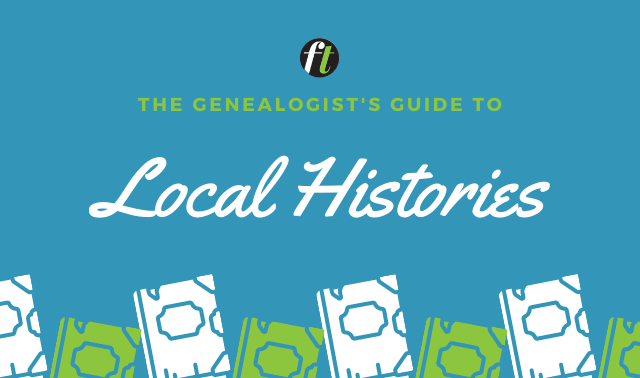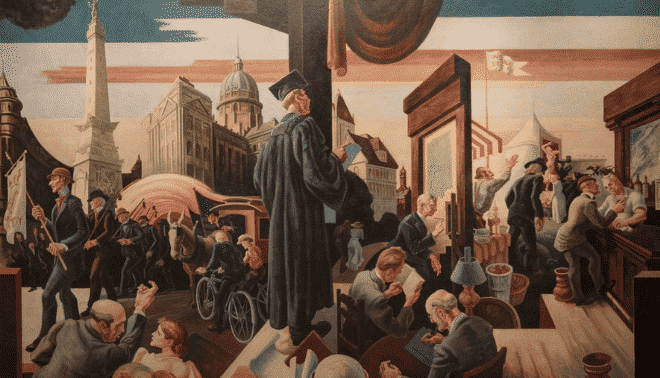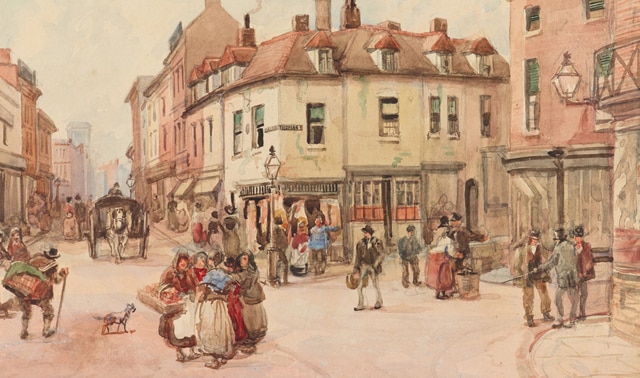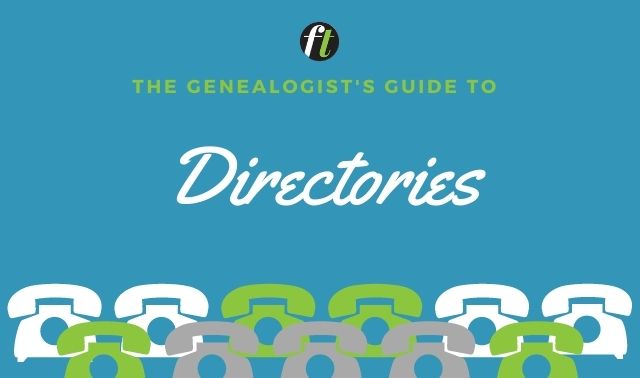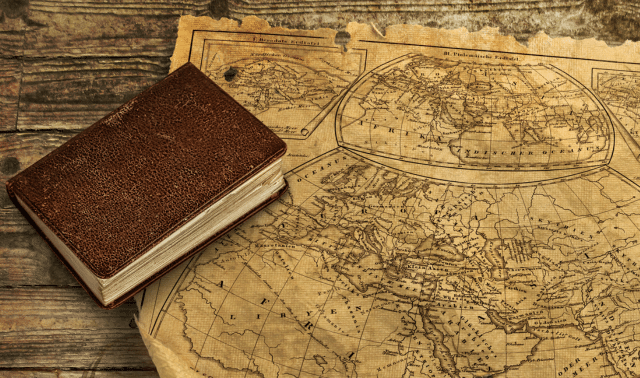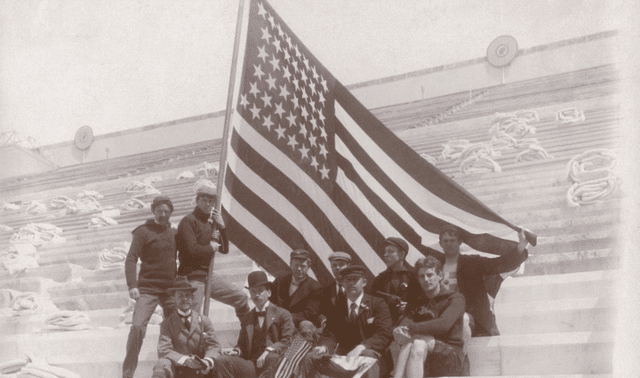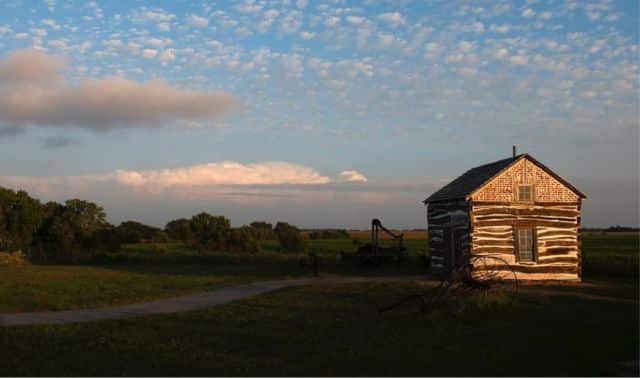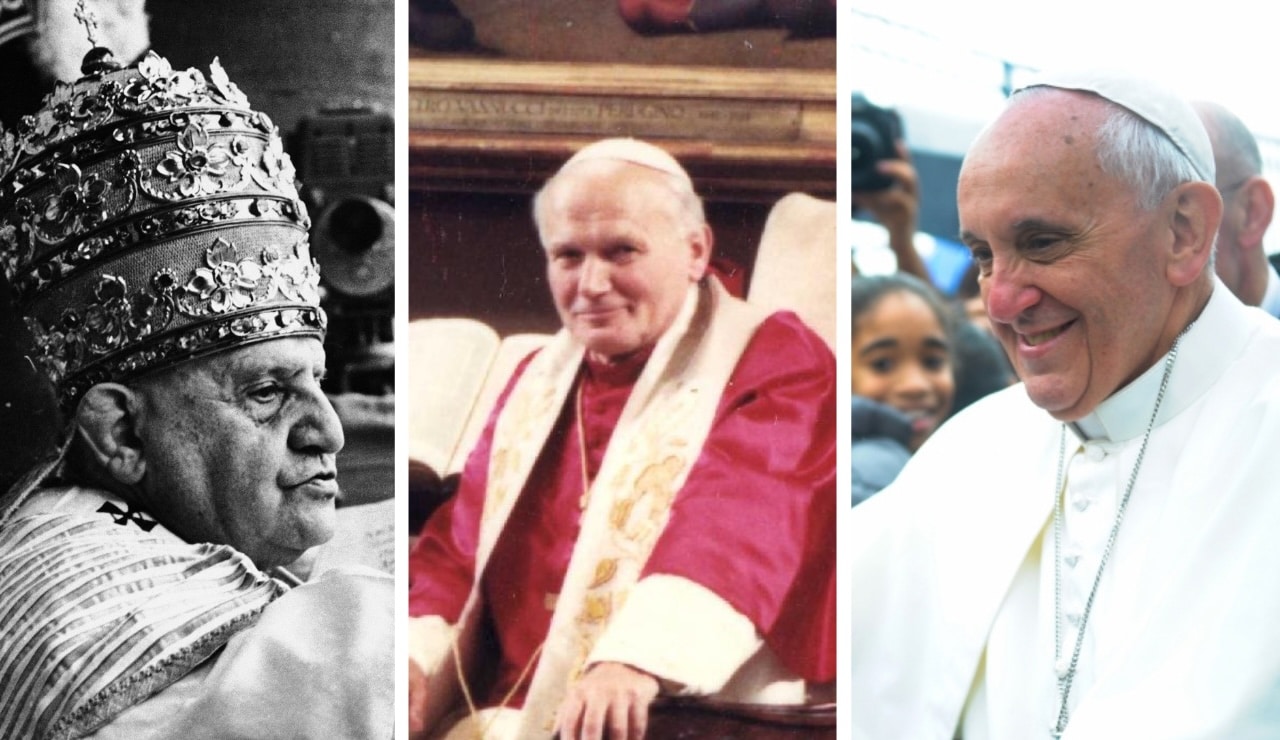Ranking among the best sources for biographical information about your ancestors, county, town and other local history books often reveal names, dates and places plus more interesting details such as occupations, religious affiliations, education and military service.
They describe the growth of agriculture, industry and transportation in your ancestors’ community, giving you an insight into everyday life. Clues on locals who served in the military and descriptions of churches, schools and cemeteries might prompt you to investigate other records.
Often published in limited numbers, county and local histories have traditionally been hard to find, and they often lack indexes. But they’re increasingly being digitized online, and online tools help you find print copies available in libraries and from stores or private owners. Here’s what these histories can contain, and where you can find them.
Genealogy Clues in Local Histories
Town, county and other local histories experienced their publishing heyday in the late 1800s and early 1900s, often published to mark a significant anniversary like a centennial. They describe an area’s founding and growth, important events, common ethnic groups, and local churches, schools, social clubs, businesses, cemeteries and newspapers. They may name directors of important organizations and contain biographies of well-known individuals. One type of local history, a “mug book,” included biographical information for those who paid a fee.
If your relative was a prominent citizen or early settler of an area, he’s more likely to be named in a local history. But even if he or she isn’t mentioned by name, you’ll glean clues for further research. For example, you might form theories about your ancestors’ religion and the church they attended, reasons for a migration and their destination, or organizations they belonged to. You’ll learn about their neighborhoods and discover what their everyday lives were like.
That’s why it’s worth paging through books that cover places where your ancestor lived, even if a search for digitized versions has no results. Check the index, if there is one, for mentions of people and places you’ve come across.
Just keep in mind that local histories are secondary sources, compiled and edited long after the events occurred by people who weren’t necessarily there. Folks profiled may have influenced the content of their biographies. All these factors are opportunities for errors to creep in. Try to find original records, such as birth or baptismal certificates, immigration documents, and wills, to verify the genealogical information you find.
How to Find Local Histories Online
When you’re searching for ancestors in local history books, it makes sense to check online first. However, not all of those books have been digitized. To get a sense of what’s available on the internet, I looked for 27 local histories I’ve used in my own family history research, mostly in printed form. Published between 1869 and 1993, they cover towns and counties across the United States and Canada. Seventeen of them were in the public domain and accessible online for free.
Of the rest, published in later years and presumably still under copyright, I can find only three on Google Books, which offers only “snippets” of the pages containing my search terms. (We’ll cover how to get such books in print.) Use the following sites to find digitized published histories:
A quick Google search is an efficient way to find a name in a multitude of sources, including county and local histories. You’ll get matches in Google Books, the largest online book collection, along with results from web pages and in other digitized sources that Google indexes. Or see just results from Google Books by clicking More at the top of your results page and choosing Books.
Googling my great-great-grandfather “Stephen S. Olmsted” (in quotation marks to search on the exact phrase) results in several potential books. A match in History of the City of Spokane and Spokane County, Washington, vol. 2, published in 1912, refers to Stephen’s son. It says Stephen was “a second cousin of Martin Van Buren.” (My research shows they actually were third cousins twice removed.)
Try searching on various forms of your ancestor’s name (such as a nickname and initials), with and without quotation marks. Especially if it’s a common name, add a term such as a place name or a spouse’s name.
To really mine Google Books, use the Advanced Book Search at to search on a combination of terms. If you know the book you’re looking for, search on the title or author in the designated fields, plus your ancestor’s name. (Type the name in the Exact Phrase box for exact matches.)
The titles of most town and county histories include the place name plus the word history. To find references to the McMorris family in histories of Delaware County, N.Y., you might put McMorris in the box for “all of the words” and Delaware County or Delaware County history in the Title box. A match in the 1880 History of Delaware County, NY says my ancestor William McMorris settled on lot no. 2 in the Kortright patent and that he and his wife were of “Gaelic or Scotch and Irish descent.”
You can search with a subject term to help catch books with unconventional titles. Local and county histories have subject terms like Mankato (Minn.)—History or Wabash County (Ind.)—History. You can leave out the word history and just search on the place name, but use the traditional state abbreviations, not full state names or two-letter postal abbreviations. A search on the phrase Ralph Withers and subject Frederick County (Va.) turns up a match in Pioneers of Old Frederick County, Virginia, which says that Ralph Withers Sr. and his wife Margaret gave 140 acres of land to their grandson Philip Crume, Jr. in 1779.
There’s no option to download a page. But if a book is free, you can click the three dots in the menu bar, then choose “Download this book” to receive a PDF or EPUB file. Take a screenshot if you want just a page or two.
HathiTrust
This digitized book site HathiTrust works much like Google Books. Similarly to that site, not all books are available in full.
Select the Full-Text option to search for a word or phrase anywhere in the collection. A search on the phrase “John J. Shaubut” produces 31 matches. To view the match in Mankato, Its First Fifty Years, click on Full View and enter a word or phrase in the box to “Search in This Text.” Type Shaubut, click the magnifying glass icon button, and you get 15 matches throughout the book. Click on the first match to view the page. You can download a single page, a range of pages, or a whole book.
The Advanced Full-Text Search makes searching on multiple terms easy. My ancestor John French was married in Pittsfield, Mass., 18 May 1782. To find him in books about Pittsfield, search on the exact phrase John French in Full-Text + All Fields, and enter Pittsfield as the Title.
History Commons
Available to libraries and individuals by subscription, this site History Commons has county histories as well as old newspapers and journals. You can find most of the database’s books listed in their American County Histories collection. Once logged in, you can limit your search to a specific state and county, but not to a single book. On the search page, uncheck “Newspapers and Magazines” and “Books,” but leave “American County Histories” checked. Optionally, select a state and county.
Ancestry.com
Many county and local histories are on this huge site Ancestry.com, available by subscription or at libraries offering Ancestry Library Edition. A global search here covers the books, but matches in them tend to rank low in your search results. It’s better to search individual county and local histories covering the places where your ancestors lived.
My great-great-grandfather Ithamar Cooley lived in Delaware County, Iowa. To find him in local histories, select All Collections from the Search tab, Iowa under Explore by Location, and Delaware under Narrow by Region. Select The History of Delaware County, Iowa in the category for Delaware Stories, Memories & Histories. You can browse pages using the links on the right, or search for a name or keyword.
FamilySearch
In addition to the free historical records and family trees at FamilySearch, you also can search tens of thousands of family history publications including books, journals, gazetteers and published histories. Note that some books are viewable only by users at the FamilySearch Library in Salt Lake City or a branch Family History location.
Find books in the FamilySearch Catalog. You can search for material using a place, surname, title, keyword, or more. Under Availability, select Any for all collections, or restrict results to only those materials that you can find online or in a FamilySearch center. Books with digital versions available will provide a link to images under their entry’s Notes section.
When viewing page images, you can use the toolbar to zoom in or out, toggle AI-generated text, or search for a word within the book. You can also download the book as a PDF or collection of JPGs.
HeritageQuest Online
This service HeritageQuest Online, available through subscribing libraries and powered by Ancestry.com, has 28,000 family and local history books. My ancestor William White lived in Cumberland County, Pa., in the late 18th century. Selecting the option to match all terms exactly, searching the books for William White with “Any Event” in Cumberland County, Pa., produces 26 results. A match in A History of the Cumberland Valley in Pennsylvania tells how a William White built a log cabin at “a Place much esteemed by the Indians for some of their best hunting Ground.” The History of Cumberland and Adams Counties, Pennsylvania says that Indians later charged at the cabin and shot White.
Internet Archive
At the Internet Archive, you can get free access to millions of digitized books in the public domain. Scroll down from the home page and click on the icon that looks like an open book to search ebooks and texts. Below the search box, select either Metadata to search on a book’s author, title and description or on Text Contents to search for a term anywhere in the text of the books.
For example, put quotation marks around a name to search on it as an exact phrase. A text search on “Stephen S. Olmsted” turns up matches in Genealogy of the Olmsted Family in America. Click on a match, and it will open to the first page where the search term appears. To enlarge the page image, click on the broken square icon at the lower right, labeled “Toggle fullscreen.”
To search for a word or phrase within the book’s text, click the magnifying glass to the left of the image (not the one above it). Click the three dots for a link to download the book as a PDF file or in another format.
MyHeritage
Collections on subscription site MyHeritage include digitized books from around the world. To focus on local histories, click on the Research tab and select “Search all records.” Then, under “What type of records are you looking for?” click on the right arrow and select Books & Publications.
If you have a family tree on MyHeritage, the site will automatically find matches for your relatives in its digitized books. You also can click on a relative’s Research This Person link and narrow matches to family and local histories by selecting Books & Publications on the left.
How to Get Local Histories in Print
Despite the huge number of online local histories, many aren’t digitized—including those published in 1927 or later, which generally aren’t in the public domain. These books are often available in local libraries and archives, and at large genealogy libraries such as the Allen County (Ind.) Public Library.
To find them, use WorldCat, which lists the holdings of more than 10,000 libraries worldwide, including the FamilySearch Library. Search on a town, county or state plus the word history or biography. Also try searching with the full state name and its abbreviation, such as Clay County Minnesota history and Clay County Minn history.
The catalog may have multiple listings for the same book, sometimes for different editions or formats (such as microfilm or print). Each listing includes details about libraries that hold the book. If none near you has it, ask your public library reference desk for help requesting the book through interlibrary loan. You also might be able to order copies of just the pages pertaining to your family.
Want your own copy? Check Amazon, eBay and used book dealers. If you can find paperback reprints of county histories, they usually cost less than the original hardcover editions.
What Can You Find in a Local History? A Sample Record
Let’s take a look at a sample page from a local county history book to see what we can learn. To see a larger version of the record, click here.
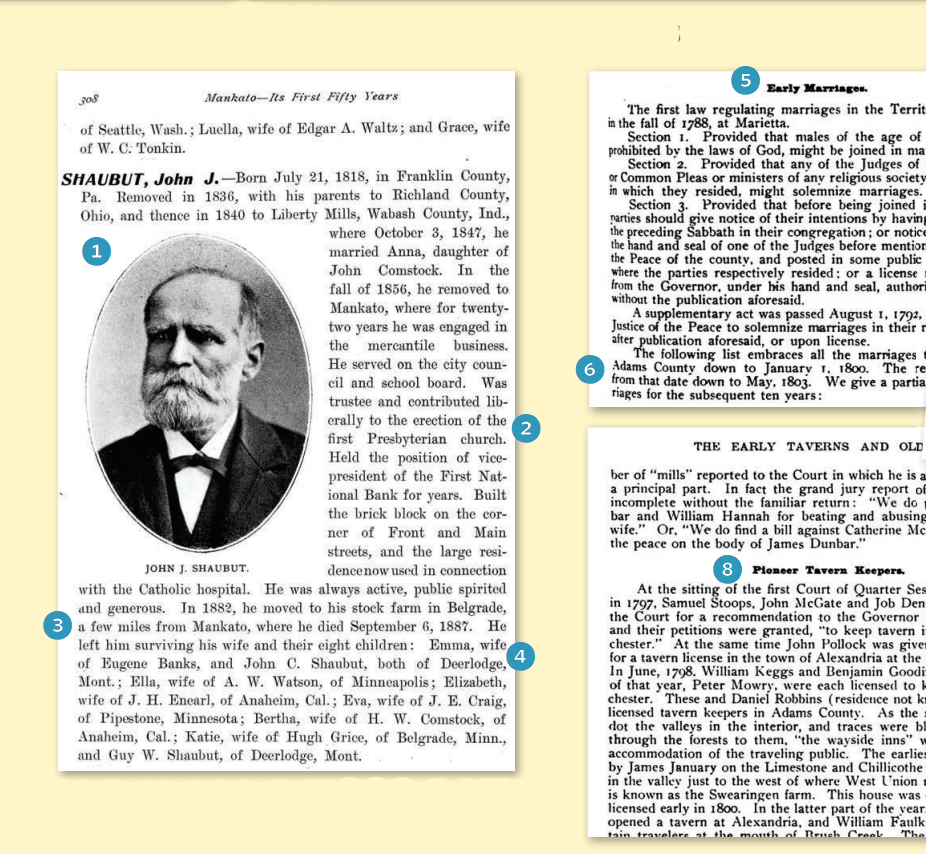
- Biography sections of town histories might feature portraits of prominent citizens.
- Chances are this man’s family attended the Presbyterian church that he contributed to. Its records might have more information on the family.
- The date and place of John J. Shaubut’s death point to his death record in Nicollet County, Minn., which names his parents (although omitting his mother’s maiden name).
- The names and residences of Shaubut’s children and their spouses are essential clues to cluster genealogy research.
- Learn about laws governing events such as marriages and probate to help you better understand what types of records to look for and where.
- This book also explains a three-year gap in marriage records and lists the county’s earliest marriages.
- Local histories are a resource for military regiments raised in a town. This one describes where Civil War units were raised and lists officers, battles and casualties for each.
- Discover everyday details of your ancestors’ lives in descriptions of roads, churches, schools, social clubs, businesses and more. Most local histories also name early officials such as mayors, council members, judges and justices of the peace.
Related Reads
Versions of this article appeared in the July/August 2016 and March/April 2022 issues of Family Tree Magazine. Last updated: February 2025

